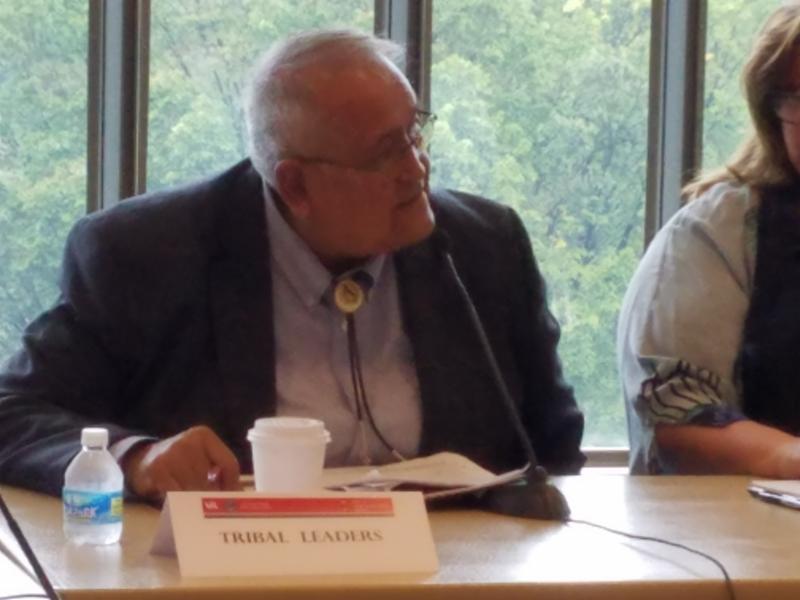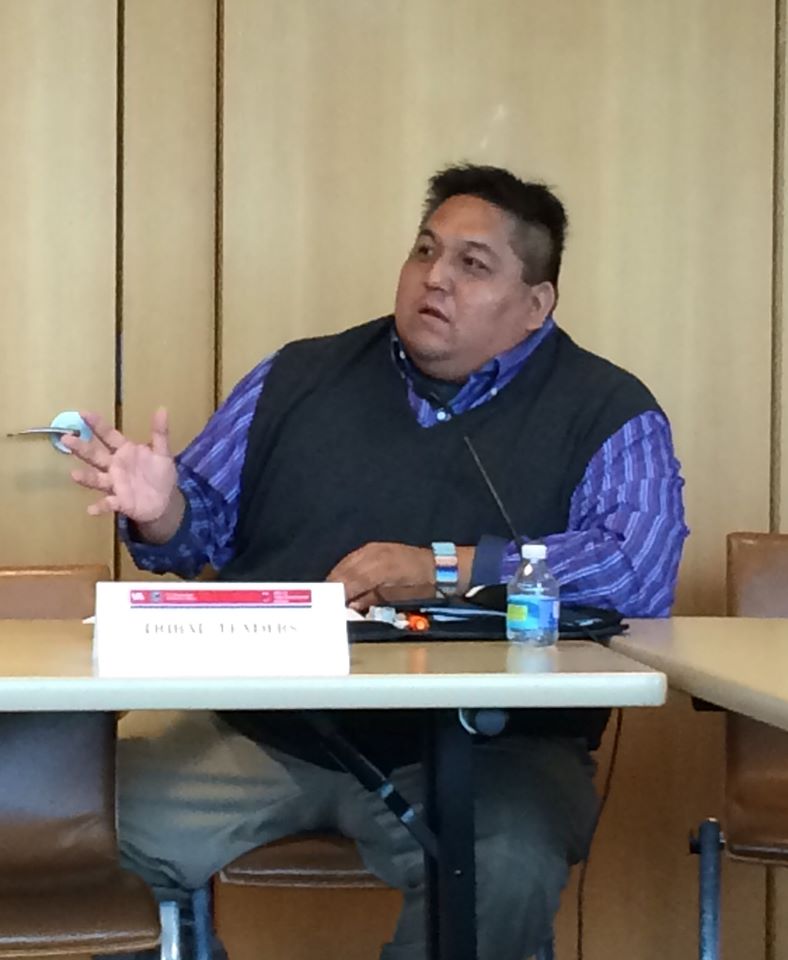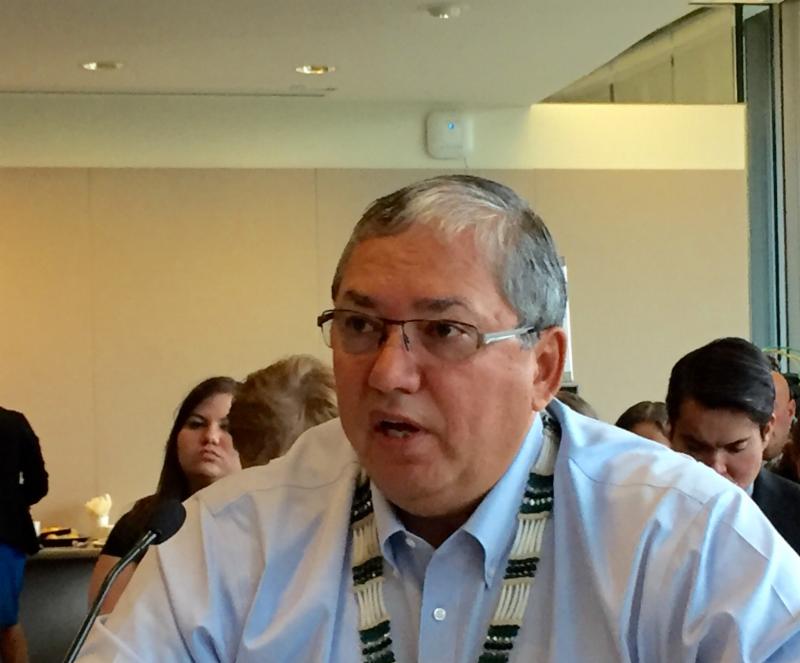
October 12, 2016
Contacts:
Devin Delrow (202) 507-4072
Sarah Freeman (202) 507-4077

Washington, DC – On September 28, 2016 the U.S. Department of Veterans Affairs (VA) held a Tribal consultation session to discuss its recent proposal to consolidate multiple community care programs into one standard program, including the Indian Health Service (IHS)/Tribal Health Program Reimbursement Agreement Program. The VA is seeking Tribal input regarding the Tribal health programs participation in the provider network, and the potential transition from the current reimbursement agreement structure to a new structure with standard reimbursement rates. Many Tribal leaders participated, including NIHB’s Chairman and Vietnam Veteran Lester Secatero. Chairman Secatero testified that the current reimbursement structure outlined in the Veterans Affairs (VA)- Indian Health Service (IHS) Memorandum of Understanding (MOU) works for Tribes. Section 405(c) of the Indian Health Care Improvement Act, requires the VA to reimburse IHS, Tribes or Tribal organizations for services provided to beneficiaries eligible for VA services. The current VA/IHS MOU honors this legislation and any proposed changes must be vetted with Tribes and Tribal organizations Chairman Secatero highlighted the importance of consultation, saying: “I hope that you are hearing us today. I hope that this is not a done deal.”

During the meeting, Tribal Leaders pressed the need for the VA to honor and fully implement the VA/IHS MOU that was implemented in 2012. In addition, repeated requests were made to approve a number of Tribal Health Program/VA MOUs that have been under review for several years. Tribal Leaders also educated VA officials on the federal trust responsibility and its extension to the entire Federal government, including the VA. Many Tribal leaders expressed concern that the VA’s consolidation plan would mean an end to the current IHS/Tribal Health Program – VA MOU structure and would result in unnecessary preapprovals, obstruct continuity of care and infringe on Tribal sovereignty. Chairman Secatero and former Pawnee Nation President, Marshall Gover called on the VA to establish a Tribal Advisory Committee to assist in developing a comprehensive reimbursement program that incorporates the I/T/U system and does not dissolve the current reimbursement agreements in place between IHS/Tribal Health Programs and the VA. Navajo Nation Vice President Jonathan Nez highlighted the need for Veterans to have the option to utilize traditional healer practices and traditional medicine. Chairman of the Omaha Tribe of Nebraska, Vernon Miller, stated that “our Tribes in the Great Plains area rely heavily on these agreements for health care. We reinforce that this MOU is working and we want to encourage that it continues.”

Victor Joseph, Tanana Chiefs Council Chairman also spoke out during the VA Tribal Consultation. “Honor our Native veterans with the health care they need when and where they need it.”
VA officials made assurances that no clear decision has been made about the IHS/Tribal Health Program Reimbursement Agreement Program. VA officials also pronounced their continued commitment of engagement with Tribal leaders about the future of this policy.
In response to Tribal concerns about the consolidation, on September 20 at the NIHB National Tribal Nations Annual Health Conference, the NIHB Board of Directors passed Resolution 16-03 Supporting the IHS and VA Memorandum of Understanding (MOU) and Objection to the Consolidation of the IHS and Tribal Reimbursement Program into One Standard Program.
Tribal consultation on the VA’s plan for consolidation is open for comment until November 5, 2016. Click here to view the Federal Register Notice and submit comments. NIHB will be collaborating with Tribes on the development of comments.
For more information, please contact NIHB’s Director of Federal Relations, Devin Delrow at ddelrow@nihb.org.
Founded in 1972, NIHB is a 501(c) 3 not for profit, charitable organization providing health care advocacy services, facilitating Tribal budget consultation and providing timely information, and other services to all Tribal governments. NIHB also conducts research, provides policy analysis, program assessment and development, national and regional meeting planning, training, technical assistance, program and project management. NIHB presents the Tribal perspective while monitoring, reporting on and responding to federal legislation and regulations. It also serves as conduit to open opportunities for the advancement of American Indian and Alaska Native health care with other national and international organizations, foundations corporations and others in its quest to build support for, and advance, Indian health care issues.



